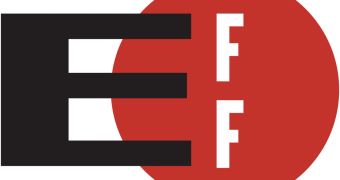The Electronic Frontier Foundation, an organization devoted to the protection of freedom in the open source world, has criticized Canonical and Mark Shuttleworth.
The EFF (Electronic Frontier Foundation) usually reserves its criticism for important events, but Canonical and Mark Shuttleworth have been targeted before on several occasions.
“Over the past few days, EFF and one of our staff technologists, the talented Micah Lee, have had an illuminating back and forth with Canonical Ltd over the use of the Ubuntu mark. While we don’t believe that Canonical has acted with malice or intent to censor, its silly invocation of trademark law is disturbing. After all, not everyone has easy recourse to lawyers and the ability to push back,” states the organization on its website.
Mark Shuttleworth also said that Canonical needed to enforce their patents, or they would lose them. This is one of the ideas that has been pointed out by the EFF as a fallacy.
“Canonical’s trademark ‘policy’ does not and cannot trump the First Amendment. Imagine the impact on free speech if you needed a ‘grant of permission’ from BP, Coca-Cola Amatil, or EFF before using one of their trademarks as part of speech criticizing their conduct.”
“It is well-settled that the First Amendment protects non-commercial websites—like https://fixubuntu.com—that use trademarks to comment upon corporations and products,” is also said the in EFF communique.
In case you didn't get the memo, Canonical's legal department sent an official letter to the owner of a website that criticized Ubuntu, requesting that he change his domain name and remove the Ubuntu logo from the website.
The community backlash forced Canonical, and subsequently Mark Shuttleworth, to apologize on a couple of occasions, saying that they regretted the measure and that a new guy was to blame.

 14 DAY TRIAL //
14 DAY TRIAL //